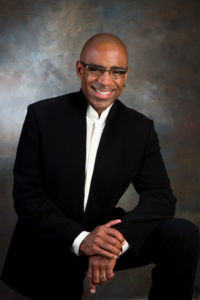It’s Black History Month again, and though I haven’t blogged about it, it’s been on my mind.
I’ve thought of it when I’ve gone to the Kennedy Center, and seen that their most visible gift shop this month features Chinese New Year.
Which does come in February, and nothing against it. But featuring Chinese New Year over Black History Month in a black-majority city? In a time of Black Lives Matter? In a season when the biggest cultural even in DC was the opening of the Museum of African-American History and Culture?
Why?
Last year…
…for Black History Month I did three posts. About three ways to mark Black History Month in the classical music world.
First by remembering the tenor Roland Hayes, an African-American concert artist who in the 1920s (!) was said to be the world’s highest-paid recitalist.
Second, by remembering — and performing — William Grant Still’s oratorio on lynching, commissioned by the New York Philharmonic, premiered by them in 1940 (with many dignitaries in the audience), and now forgotten.
And third, by noting Elaine Mack’s oral history of classical music in Philadelphia’s black communities, a book that’s an eye-opener for people (most of us, I think) who don’t know how much love of classical music, and how much classical music-making, went on in black communities in past generations.
The book isn’t currently available, but should be back in print in a few months. I’ll post here when that happens.
So this year…
 For a start, you might read Aaron Dworkin’s essay on diversity, “Collaborating Across Diverse Communities,” currently featured on the DePauw School of Music’s 21CM website. Dworkin was the founder of The Sphinx Organization, which promotes diversity by helping and featuring minority musicians. Now — a really stunning choice for this job — he’s dean of the University of Michigan School of Music.
For a start, you might read Aaron Dworkin’s essay on diversity, “Collaborating Across Diverse Communities,” currently featured on the DePauw School of Music’s 21CM website. Dworkin was the founder of The Sphinx Organization, which promotes diversity by helping and featuring minority musicians. Now — a really stunning choice for this job — he’s dean of the University of Michigan School of Music.
He has a lot to say on 21CM about his biracial background, about being the only black kid in his town, about doing things (like playing the violin) that marked him — for people who believe in stereotypes — as not black.
But what will echo in my heart for quite a while are the thoughts at the end of his essay. No choice but to quote them:
 Nigerian author Chimamanda Ngozi Adichie said, “The danger of a single story is not that it is untrue but that it is incomplete.” The stories we weave in the performing arts today are incomplete, and I believe it is your responsibility (if you choose to be an artist-citizen of excellence) to deliver more complete stories about the lives we live. And it is my obligation as an educator to prepare students to be relevant to our full society while empowering the disciplines we teach to be relevant to our communities.
Nigerian author Chimamanda Ngozi Adichie said, “The danger of a single story is not that it is untrue but that it is incomplete.” The stories we weave in the performing arts today are incomplete, and I believe it is your responsibility (if you choose to be an artist-citizen of excellence) to deliver more complete stories about the lives we live. And it is my obligation as an educator to prepare students to be relevant to our full society while empowering the disciplines we teach to be relevant to our communities.
What we do know from the lessons of history is that a segmented society, where differences are not celebrated but rather mocked, attacked, dismissed or not tolerated, is not sustainable for a thriving civil democratic environment. As an artist-leader, you are the bridge that crosses these more shallow man-made barriers. You have the opportunity, influence and, ultimately, the power to bring human beings together across racial, religious, gender, socioeconomic and other boundaries. But you must not be passive. You must act.
Still echoing.
In my next post, another thought on what we can do for Black History Month

Greg, thank you for the endorsement of my book which will be re-released in a few months.
“The stories we weave in the performing arts today are incomplete, and I believe it is your responsibility (if you choose to be an artist-citizen of excellence) to deliver more complete stories about the lives we live.” This rings true with me on all levels and informs my work. It’s all to easy to jump on the “famous” person bandwagon. relaying the stories of non-famous artists involves a certain amount of risk, but these stories must be told as well. .
Thanks for this, Elaine. And you know I agree. After Viola Davis’s impassioned speech at the Oscars last night, the idea of telling the untold stories takes on new resonance, new excitement.